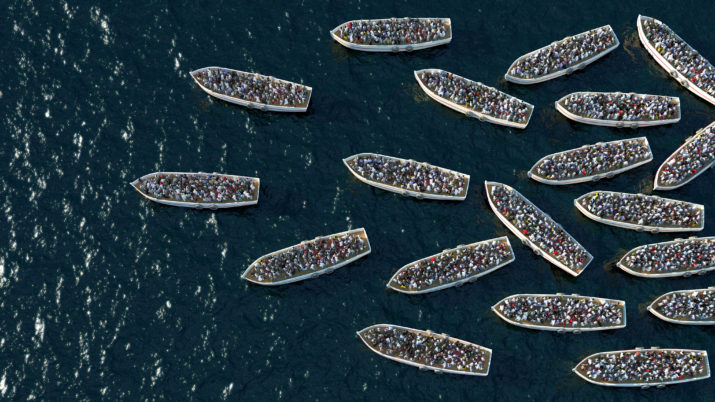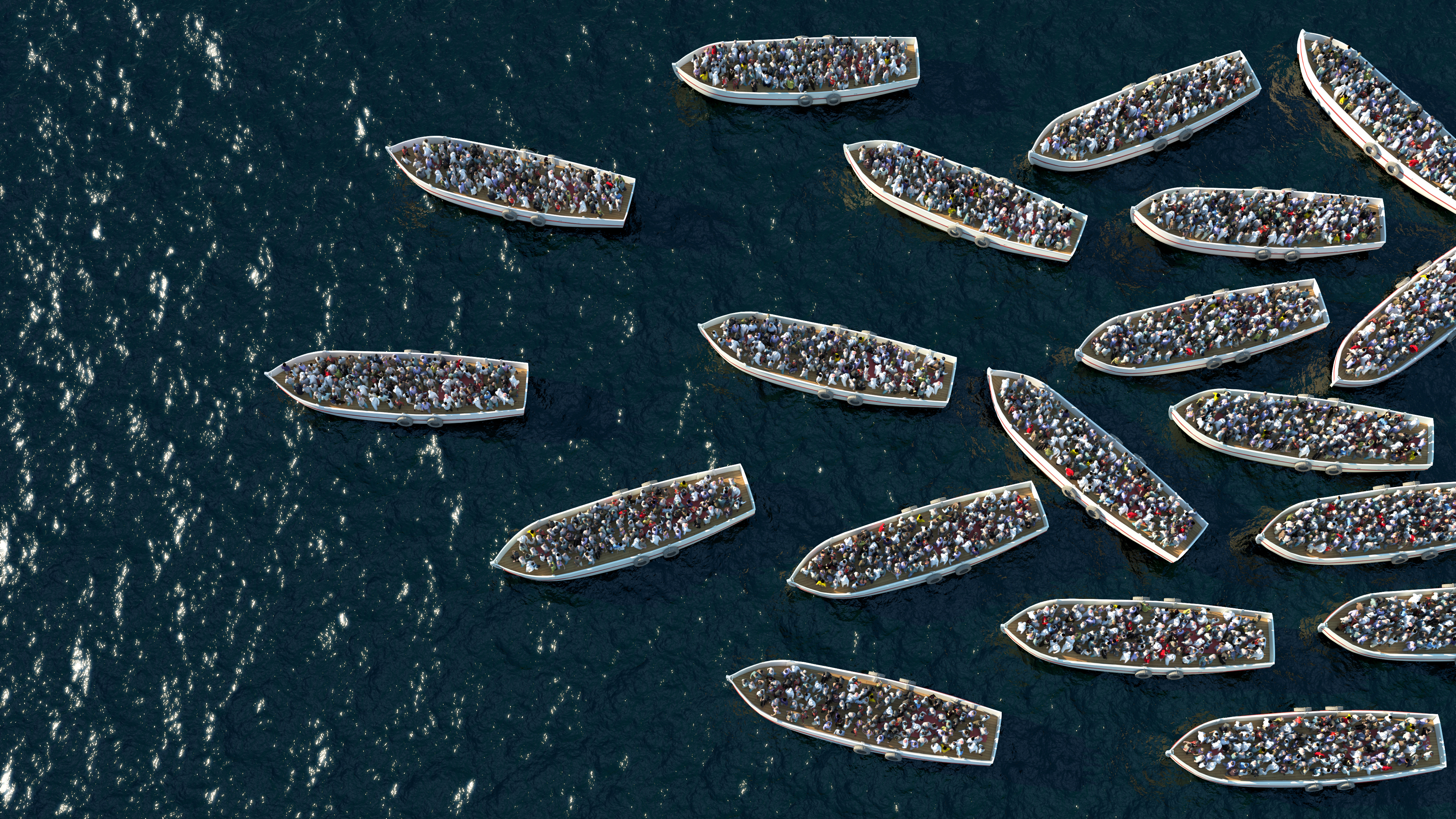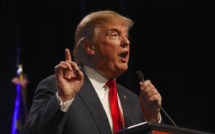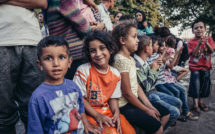

An introduction to our feature on Forced Migration, Cultural Identity, and Trauma in Europe.
We live in the age of Forced Migration. In Syria alone, an estimated 11 million are displaced: 6.6 million within the country and 4.8 million seeking refuge in other countries. The inhumanity witnessed by us all, gone viral on the Internet and social media, desensitizes and numbs the mind. It is easy to retreat into some form of sanctuary – dismissal, escapism, cynicism, cognitive dissonance – rather than answer the challenge, or at least process reality. So-called populist governments play into our fear of the Muslim Stranger, a war-shaken and traumatized victim that poses a national security threat. Only in October 2016, Rudy Giuliani claimed that Hillary Clinton wanted to “import 60,000 terrorists” into the US by “open[ing] borders and let[ing] in Syrian refugees,” failing to acknowledge that lower Manhattan had a “Little Syria” only one hundred years ago where Arabic culture was part of everyday New York City with a thriving literary scene, Arabic printing presses, and a bustling street life.
In this issue, we take stock in forced migration, cultural identity, and trauma across a wide range of human experiences. Through political analysis, scientific inquiry, literature, poetry, language, and the arts, we examine the loss of culture and identity, and the effects of trauma on the human mind, as well as the healing power of artistic expression. This special feature also marks the inauguration of EuropeNow Campus, highlighting innovative curricula and models of higher education institutions to engage students in contemporary issues and to create empathy among the next generation of leaders. Here is to our common humanity.
In his research article “Confronting the Terrorist/Refugee Narrative,” James Fitzgerald examines the conflation of “refugees” with that of “terrorism” by critically interrogating how this conflation has occurred and the potential effect it has on those seeking refuge in new, sovereign territories. Fitzgerald’s article ultimately argues for the creation of open spaces wherein those affected by the terrorism/refugee label can positively assert their identities to the contrary, confronting pervasive narratives of security with concentrated reminders of humanity.
Marjorie Agosin’s poem “La Noche Tan Larga,” translated into English by Allison Ridley, links historic memory and transnational identity by remembering the rise of fascism and its first culmination of violence in “The Night of Broken Glass.” Agosin juxtaposes this historic event and the night of Trump’s election, thereby powerfully capturing the recurring fear of the Stranger and the “hate incited by that new voice that would become Our leader.” The poem also provides hope that despite all the hatred and chaos, we can learn from “history in the making.”
Daniel Goulden’s podcast “The History of Migration in Europe,” connects us with various refugee crises of the past and reminds us that we failed to accurately respond to a refugee crisis once before: the Jewish crisis of WWII. Only be staying connected with our past and by understanding past failures are we prepared to tackle the challenges of the future, and should feel a moral obligation do so.
Eamonn Butler’s commentary explores the way in which national identity is no longer the taboo subject it was in terms of its influence on shaping policy and politics. He highlights how the issue of internal EU immigration and the recent refugee crisis informed key debates during and after the UK and Hungarian referenda of 2016. He argues that in both cases the EU was promoted as part of the problem and that we can suggest that it is the relationship of both countries to the EU vis-à-vis their national identity rather than the actual issue of migration that pose real challenges to the idea of European integration going forward.
In her blog “Language Cafes as a Site of Wider Cultural Integration,” Claire Needler reveals what it takes for a person to settle, to feel at home by drawing from her involvement with Participatory Action Research in Aberdeenshire. Migrant populations often face barriers, such as poor language skills and the opportunity to practice with native speakers, which prevents them from socializing with the local community. A Language Cafe offers informal ESOL as part of a more holistic approach to intercultural communication and wider integration by means of promoting social justice and cultural identity via informal language immersion.
Refugee resettlement is a moral commitment.
In her interview, Maria Höhn discusses why forced migration should matter to all of us. Through education and knowledge, we must create a shift in thinking to alleviate some of the concerns and prejudices within our communities against refugees and resettlement projects, particularly in light of the terrorist images that the newly elected US president reinforces. Höhn further argues that, with careful refugee integration and increased community outreach, revitalization of economically deprived areas can be achieved in the long run.
Turhan Canli, in his research article, argues for a bio-psycho-social research agenda in light of refugees and other traumatized groups to maximize wellbeing via individual treatment interventions. Although the need for mental health treatment is great among those groups, countries, such as Germany, only consider acute illness a reason for intervention. Requests for psychotherapy are often turned down which, according to Canli, explains the rising numbers of mental and somatic illnesses, the latter of which suggests to be linked and should be studied comprehensively.
Loss, destruction, and violence mark the core of “Assemblage,” Nisha Sajnani’s curated artwork that conveys meaning where all words seem to fail. The series features Syrian-American artist and architect Mohamad Hafez, Iranian-American artist Sheida Soleimani, Iraqi-French artist Haider Wady, and Israeli-born, Berlin-based director and drama therapist Ilil Land-Boss. “Assemblage” makes a powerful political statement through “render[ing] visible the layered impact of political violence.”
Our inaugural feature in EuropeNow Campus will highlight innovative teaching projects and ways of connecting students with Europe today. This feature explores experimental curricula and/or service-learning projects that encourage students to put what they have learned in the classroom into practice, and reengage and strengthen student and faculty commitment to Europe and European language learning. This first issue highlights Vassar College’s innovative response to the refugee crisis, the Mid-Hudson Refugee Solidarity Alliance, a large network of higher education institutions, engaged student leaders, and policy-makers.
Lastly, in his interview, Mike Niconchuk discusses his work as a former Emergency Response Coordinator and Youth Education Officer in Za’atri Refugee Camp in Jordan, where he helped vulnerable young refugees cope with their traumatic experiences of war, displacement, and cultural loss. Niconchuk’s practical experiences and his very personal encounter with displaced individuals in Europe shape his ongoing research interests in the nexus of forced migration, mental health, and social behavior.
Nicole Shea is the Director of the Council for European Studies and Executive Editor of EuropeNow.
Turhan Canli is Professor of Psychology and Psychiatry at Stony Brook University, Director of the SCAN (Social, Cognitive, and Affective Neuroscience) Center and Director of the Mind/Brain Center on War and Humanity.
Research
“Confronting the Terrorist/Refugee Narrative” by James Fitzgerald
“Refugee Mental Health Through the Lens of Neuroscience and Genetics” by Turhan Canli
Commentary
“Trump Against Europe” by Morten Høi Jensen
“Untranslated Fire: Francophone Responses to the Charlie Hebdo Attacks” by Arturo Desimone
Interviews
“Forced Migration and Displacement: An Interview with Maria Höhn” by Mount Saint Mary College
Podcast
“The History of Migration in Europe” produced by Daniel Goulden
Visual Art
Assemblage: An Art Series on Identity, Memory, and Displacement
Campus Spotlight: University of Kansas
“University of Kansas Offers First-Year Seminar on World War I” by Dale Urie
“World War I American Immigrant Poetry: A Digital Humanities Project” by Lorie A. Vanchena
“The University of Kansas Commemorates World War I Centennial” by Lorie A. Vanchena
Photo: Lesbos, Greece, punghi | Shutterstock
Published on February 1, 2017.




